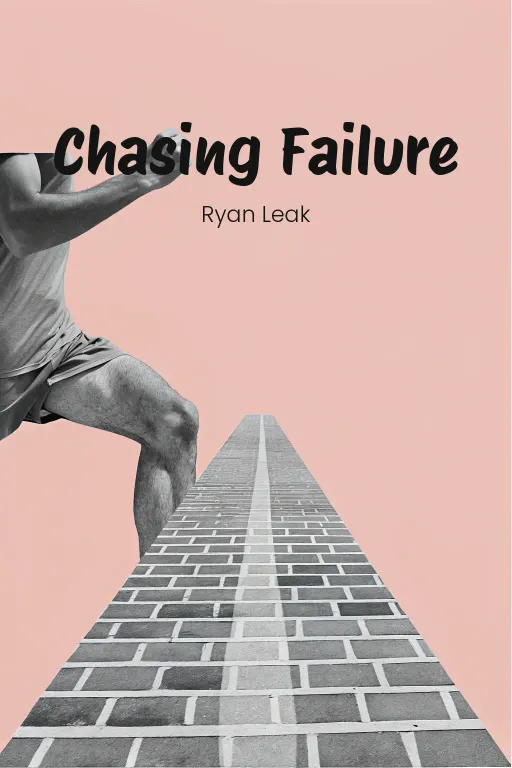
Life's Blueprint: Mastery, Power, and Strategy
Podcast by The Mindful Minute with Autumn and Rachel
366 Meditations on Power, Seduction, Mastery, Strategy, and Human Nature
Life's Blueprint: Mastery, Power, and Strategy
Part 1
Autumn: Hey everyone, welcome back! Today we're tackling The Daily Laws by Robert Greene – a book that, honestly, might just be the ultimate handbook for life's ups and downs. Rachel, are you as excited as I am about this? Rachel: (Slightly sarcastic tone) A daily dose of self-mastery, power, and failure? It's either genius or a recipe for complete existential dread. But I'm betting it leans more towards calculated strategy than fluffy inspiration, right? Autumn: Precisely! Greene's a pro at mixing history, psychology, and strategic thinking. He helps us understand the forces that drive our lives—whether we want to be better at what we do, build better relationships, or just be more prepared for what's coming. It's all about creating clarity, finding your purpose, and, most importantly, building resilience. Rachel: So, it’s Sun Tzu meets Aristotle, maybe with a dash of Shakespearean tragedy for good measure. Okay, I’m following. What’s our focus for today? Autumn: We’re going to look at this book as if we were sculpting a piece of marble. First, we'll lay the groundwork: mastery, which is essential for discovering purpose and fulfilling our potential. Next, we'll explore how we relate to each other, where influence and diplomacy are key. And finally, we’ll take a broad view of strategic thinking, like an eagle soaring to see the whole landscape and predict what might happen. Rachel: Okay, a sculptor, a dancer, and an eagle. Ambitious! Sounds like we're covering pretty much everything it means to be human. Autumn: Exactly! So, where should we begin?
Mastery and Personal Growth
Part 2
Autumn: Okay, so let's start with the basics: mastery and personal growth. It really boils down to understanding and embracing what makes you, “you”. Greene talks about this "Life's Task," which is essentially your natural calling. Think of it like a seed inside you, shaped by your genes, your life experiences, even those early passions. The trick is to recognize it and then align your actions with it. Pure self-awareness, really. Rachel: This "seed" thing – is that nature or nurture? Because if it's all predetermined, doesn't that feel a little… deterministic? Autumn: Good point! It's definitely a mix of both. Greene points out that these inclinations often pop up in childhood. You know, like the kid constantly drawing or taking things apart to see how they work. These are clues to your Life's Task. The challenge is to cut through all the noise to find them again. Rachel: Ah, societal noise! You mean parents pushing you to become a lawyer when you dream of opening a bakery? Or the classic "doctor, engineer, or disappointment" scenario? Autumn: Exactly! Society tends to nudge us toward the safe route – money, status, what looks good from the outside. And that can make us ignore our inner compass. Robert Greene himself is a great example. He bounced around a lot early on, feeling kind of lost. But looking back, each experience, even the random ones, helped him become the writer he was meant to be. Rachel: So, is the takeaway here that your aimless twenties are okay, as long as you eventually connect the dots? Autumn: Precisely! But you have to be actively reflecting. Greene suggests journaling to spot patterns: When do you feel truly alive? What inspires you? If you honor those moments, you can craft a unique identity that won't crumble under pressure. This alignment is your anchor for personal growth. Rachel: Interesting. Hypothetically, someone figures out their Life's Task, say, writing or sculpting. What then? Is that where the apprenticeship comes in? Autumn: Bingo! Knowing your Life's Task is the starting point. Next, you dive into what Greene refers to as the ideal apprenticeship. It's a deep-dive learning period, where you build discipline, face challenges head-on, and soak up knowledge from others. Think of it as sharpening a blade: you refine yourself through deliberate practice and sticking with it, even when it gets tough. Rachel: Deliberate practice… sounds straightforward. But I bet it’s not always as glamorous as it sounds. Autumn: Oh, not at all! It demands humility and patience. Greene uses the analogy of a sculptor chipping away at stone. You're removing the imperfections – bad habits, wasted effort, even ignorance – to reveal the masterpiece underneath. And feedback, honest feedback, is key here. Beethoven, for example – early on, he was pummeled by critics, but those brutal lessons became the foundation for his genius. Rachel: Harsh! I mean, Beethoven turned out okay, but not everyone handles criticism like a champ. Doesn't relentless critique risk discouraging people? Autumn: It's a valid point, but it's about how you frame it. Greene believes criticism shouldn’t destroy you; it should refine you. A good apprenticeship teaches you to see failure as part of the process. So you're not just learning skills; you're developing a mindset that sees obstacles as opportunities. Rachel: Okay, I'm on board. But what about mentors? Everyone talks about finding one, but it feels nearly impossible. Autumn: It's true, great mentors can be hard to find, but they're incredibly valuable. Greene emphasizes how mentorship accelerates learning. A good mentor doesn't just give you answers; they reignite their own passion through teaching. And it's not a one-way relationship – the apprentice brings fresh energy and a new perspective to the mentor. But mentorship isn't the only path. Self-study, workshops, even observing experts from afar can be powerful. Rachel: Right, that makes sense. So, after this apprenticeship sculpting phase, you activate mastery, right? What does that even look like? Autumn: Activating mastery is the culmination of the journey. It's weaving years of practice, struggle, and insight into consistent excellence. Greene uses Beethoven again, showing how he created some of his most groundbreaking work after he lost his hearing. His discipline and relentless innovation allowed him to transcend that limitation. Rachel: Beethoven’s story is amazing, but isn't there a danger of romanticizing mastery? We focus on the highlight reel but gloss over the burnout or plateaus. Autumn: True mastery is never stagnant. Greene argues it’s an iterative process—not a destination. True masters keep evolving, pushing boundaries, and reinventing themselves. Think "cross-pollination": combining different fields to create something unique, like art and science in Leonardo da Vinci’s work. Rachel: So it's not a finish line; it's about constantly staying in the game and evolving. Which is great… unless you're a perfectionist who's never satisfied. Autumn: That’s why routines and systems are so important. They help push yourself without getting bogged down in self-doubt. Greene recommends setting ambitious goals, attacking complex projects, and consistently stepping outside your comfort zone. The result? A natural and sustainable path forward. Rachel: I get it - a blueprint for growth: discover your passion, devote yourself to learning, and commit to constant improvement. Sounds like a lot of work. No shortcuts here, huh? Autumn: No shortcuts, but it’s incredibly rewarding. When you follow these steps, mastery becomes more than just a skill – it transforms into an identity rooted in your authenticity and resilience. And that's where you find true fulfillment and purpose.
Social Dynamics and Power Strategies
Part 3
Autumn: So, having set the stage with personal mastery, we're now diving into how those principles actually play out in our interactions with others. Greene makes quite a shift here, turning from looking inward to thinking strategically outward. Today, we're going to explore how those basic power dynamics evolve into practical ways to influence people, look at the importance of emotional intelligence, and wrap up with the tricky art of working well in groups. Rachel: Ah, so we're going from self-improvement to... playing people like a game of chess? It sounds like we're entering a world of manipulation and, well, let's call it “intrigue.” Should I be raising my defenses already? Autumn: Not exactly manipulation, Rachel. Greene is all about staying authentic, even when you're being strategic. Let's start with the foundation—what Greene says is the core of power. It's not just about being strong or bossing people around, but about skillfully and subtly influencing what happens. He says true power comes from understanding what motivates people and having emotional intelligence. Rachel: Influence, not force – that makes sense in theory. But let's get practical. Say I'm at work, in a real pressure-cooker environment. What does "power" look like there, beyond just having the corner office or a fancy title? Autumn: That's a great point. Traditional structures might give authority to certain roles, but Greene shows us that real influence often goes beyond titles. It's about having emotional sharpness – understanding the mood of a room, guessing what people need before they say it, and helping people see that their goals line up with yours. Imagine a coworker who notices that someone on the team is unsure about their work during a meeting. Instead of ignoring them, they point out what that person is good at or share the credit for a project. That builds trust and teamwork without being too obviously self-serving. Rachel: Right, but isn't there a danger that people will misread that? Like, "Oh, look, Rachel's being nice – he must want something from me." Autumn: It's all about being genuine. Greene says it should be subtle and authentic. What you do should come from a real understanding, not just from trying to get ahead. Take Galileo, for example. He wasn't just trying to get famous with his discoveries. He cleverly named his celestial findings after the Medicis, aligning his goals with theirs. That got him their support and strengthened his position. Rachel: Galileo was definitely playing the game, I'll give him that – but isn't Greene's law about "Never Outshine the Master" a little... limiting? If you're always hiding your talents for someone else's ego, how do you grow without getting stuck? Autumn: It's not about shrinking yourself, Rachel; it's about finding a balance. Greene's point is to be careful when you're dealing with people in charge who might feel threatened. Think of it as diplomacy – by making them feel secure, you create opportunities to advance without causing trouble. But it doesn't mean you should hide who you are. It's about timing and knowing the situation. Rachel: Okay, I can see that working in some cases. But what if the real power isn't where you expect it to be? Greene talks about "Hidden Sources of Authority." How are we supposed to spot those when companies are often like icebergs – you only see a fraction of what's really going on? Autumn: Exactly! That's why it's so important to observe. Greene uses the example of Cardinal Richelieu in Louis XIII's court. Officially, he was the king's subordinate, but he actually had immense influence behind the scenes through his alliances and clever moves. The lesson is to look beyond the obvious organizational chart and figure out who really controls things, like how resources or ideas flow. Rachel: So, don't just read the org chart – look at who's pulling the strings. Got it. But that brings up another one of Greene's laws: boldness. Napoleon, for example, combined lightning-fast attacks with careful planning. Boldness sounds great, but if you rely on it too much, don't you risk everything blowing up in your face? Autumn: It can, if you're reckless! But Napoleon is a great example of how to be bold in a smart way. He made daring decisions, but he also prepared thoroughly. It's not about taking crazy risks, but about knowing when to act decisively and having the foundation in place to support your actions. It’s where preparation meets courage. Rachel: Preparation, courage, and maybe a little unpredictability – it's like Picasso, right? Constantly reinventing yourself to keep everyone guessing. But realistically, we can't all be generals or geniuses. How does being unpredictable work for regular people in everyday life? Autumn: Unpredictability is about breaking the pattern. Think of someone whose responses are always predictable in negotiations or arguments – it's easy to know what they'll do next. But if they sometimes do something unexpected, it forces others to rethink their approach, giving that person an advantage. It’s about keeping things interesting and creating some intrigue. Rachel: Alright, so we have subtle influence, strategic boldness, and unpredictability. But it seems like something is missing – image. Doesn't everything depend on how others see us? Autumn: Absolutely, and Greene dedicates a whole section to this. Protecting your public image is crucial because how people see you often matters more than what's actually true. Al Capone is a fascinating example – he cultivated two completely opposite reputations. In the criminal world, he was a ruthless boss, but to the public, he portrayed himself as a generous person helping the poor. That dual image strengthened his power on both sides. Rachel: So, it's not enough to be good at what you do; you also have to create a story around yourself. Is that what we're talking about here – personal branding for strategic thinkers? Autumn: Basically, yes. It's about making sure your public image supports your goals and values, while also managing any contradictions. Ultimately, your reputation is a tool to amplify your influence and protect yourself from unnecessary conflicts. Rachel: Got it. But I'm noticing a recurring theme that all these strategies depend on – emotional discipline. Without it, none of this would work, right? Autumn: Exactly. Emotional control is the foundation of effective power strategies. Greene illustrates this with the story of the Zen tea master who was challenged to a duel by a samurai. The master's calm precision during the tea ceremony made the samurai back down, sensing an unshakeable power in his calmness. It's a powerful example of how emotional control is more effective than words or physical strength. Rachel: So, if I channel my inner Zen and stay emotionally controlled, I can outsmart a samurai – or at least survive my next intense meeting. But how do you actually develop that kind of self-control? Autumn: Through consistent practice and thoughtful habits. Emotional intelligence is about understanding what others want and why, while also keeping your own emotions in check. Greene suggests taking a step back to ask, "What does this person really want?" That shift in perspective can help you avoid impulsive decisions and guide you towards strategies that benefit everyone. Rachel: That sounds easy until you're actually in a high-pressure situation – that's when your instincts take over and usually mess things up. Autumn: That's why consistency is key. Emotional mastery isn't about suppressing your feelings, but about channeling them in a positive way. Over time, this builds mental toughness in stressful situations, helping you to focus on solutions instead of just reacting. Rachel: That's helpful, but let's wrap up with group dynamics. Navigating power one-on-one is one thing – but how do these strategies work in a room full of different personalities and agendas? Autumn: Groups amplify everything – opportunities, tensions, and influence. Greene emphasizes balancing being yourself with strategically aligning with the group. Social media, for instance, reflects group dynamics on a large scale. While fitting in helps you connect with others, sharing new ideas can position you as a leader. The same applies in workplace teams – be collaborative, but don't be afraid to introduce innovative ideas. Rachel: So, it's a balancing act: fit in enough to connect, but stand out enough to influence. Definitely easier said than done. Autumn: It is, but Greene's principles give us the tools we need. By combining discretion, boldness, and emotional insight, we can thrive in group settings without losing who we are. That's the key to navigating social dynamics successfully.
Strategic Thinking and Human Nature
Part 4
Autumn: So, having a solid understanding of social dynamics, we’re now going to look at how strategic thinking can “really” boost your decision-making, especially when things are uncertain. Today’s big topic, “Strategic Thinking and Human Nature,” is all about moving beyond just reacting to things as they happen. We’re talking about going from short-term tactics to actually planning ahead, connecting your personal growth to the bigger questions in life, and ultimately, seeing things from a more profound perspective. We'll break it all down, and show how things like staying calm, being adaptable, and even thinking about our own mortality fit into a bigger strategy for life. Rachel: Okay, so we're not just looking at the small battles in social situations, but trying to figure out the overall game plan for life? Sounds like a tall order. Maybe we should start with the basics, what's the difference between tactics and strategy? Autumn: Absolutely fundamental, and Greene is “really” clear about it. Tactics are your immediate moves – how you handle a disagreement, a quick decision, or a specific challenge. Strategy, though, is stepping back to see the whole field. It's about your long-term goals and making sure every tactical move helps you get there. Think of it like this: tactics are the individual notes, strategy is the entire symphony. Rachel: Right, I got it. But can you even function without a strategy? People are constantly making tactical decisions, like rushing to finish a project or defusing a tense situation. That doesn’t mean they’re thinking five steps ahead, right? Autumn: Exactly! And that’s what Greene points out. Even if your individual actions are successful, they won’t lead to real progress if you don’t have a strategy. A good example of this is the U.S. invasion of Iraq. The military tactics got Saddam Hussein out of power quickly, but they didn’t have a solid plan for what was next. That lack of long-term strategy led to chaos and instability. Rachel: Ouch, a pretty stark example. But in terms of day to day life, how do you avoid living only in the moment? Autumn: Well, Greene says you need to keep your eye on your overall goals – something that matters more than quick wins. For instance, imagine you're dealing with a difficult coworker. Arguing every little thing feels good in the short term, but it distracts you from your real goal of moving up in your career. A strategic thinker ignores the small stuff, stays calm, and focuses on building their skills and making themselves an asset. Rachel: Ah, so you ask yourself, "Does this action help me reach my long-term goals?" If not, let it go? Autumn: Exactly. It's a conscious decision. Greene even believes that strategy and emotional control are linked. If you can't stay steady, you'll get sidetracked by instant gratification or get pulled into impulse decisions. Rachel: Okay, that makes sense. And this brings us to emotional control – Greene acts like it’s the foundation of good strategy. Why is staying calm so important? Autumn: Well, think of calm as providing the clarity you need to make good choices instead of rash ones. Greene tells the story of the Japanese tea master who had to duel a samurai. Instead of panicking, the tea master calmly went through his tea ceremony ritual. When the duel actually happened, his composure was so impressive that the samurai realized he had a deep inner strength and called off the fight. Rachel: That’s some next-level calm! But how does that apply in real life? What about a high-pressure business meeting or a heated discussion? Autumn: The same idea applies. Stepping back from your emotions lets you control the situation. So, imagine you’re in a tense meeting. Instead of arguing back or getting defensive, you take a look around the room – notice the body language, listen to what’s “really” being said, and respond in a measured way. I mean, it’s like pausing a game to see what everyone else is doing before you make your move. Rachel: So, strategic calm is about observing and timing things right, not just about holding your tongue. But let’s go deeper on this – uncertainty. Greene seems to think chaos can be a good thing. That’s not how most people see it! Autumn: I know, right? But he points out that uncertainty is normal, and actually a good thing. Just think, take a business leader dealing with a fast-changing market. Instead of sticking to a plan that isn't working, they change course, they gather information, they adapt, and see the instability as a chance to come up with something new, instead of panicking. Being adaptable turns chaos into a place for growth. Rachel: Interesting. How do you personally find opportunity in an uncertain situation? It’s easy to say “embrace change,” but how do you stop anxiety from taking over? Autumn: That's where not being too attached to fixed plans comes in. Greene talks about being flexible – that having fixed ideas limits you, while being open to new plans keeps you growing. Let's say someone loses their job without warning. Fear might make them look for anything familiar, but a strategic thinker sees it as a time to think about what matters, work on skills they forgot about, or even start something totally new. Rachel: So, instead of asking "Why is this happening to me?", you ask “What can I create from this?". That change in perspective is so key, and since these days things are always changing. Autumn: Exactly! Strategic thinkers use uncertain times as a chance to be creative. But Greene takes it even further – he says the best strategy involves facing our own mortality, and looking for what’s profound. Rachel: Woah, hold on. Mortality? That’s a big leap from tactics. What’s the connection? Autumn: It’s all about gaining perspective. Greene says that realizing we won’t be here forever makes our strategic thinking better. Knowing that life is short helps you see what’s truly important – like relationships, what you'll leave behind, or what you create. Greene uses the example of people who have almost died – they come out of it with a clear sense of what matters to them, and a strong desire to live a meaningful life. Rachel: Okay, so thinking about mortality isn’t depressing, it’s a way to stop wasting time on things that don’t matter. Autumn: Exactly. And then there's the sublime – those moments that take you out of yourself and fill you with awe. Like staring up at the stars and feeling your place in the universe. These moments teach you humility and make you more creative. Greene says you should use that awareness in your strategy, and base your decisions on not just logic, but the full experience of being human. Rachel: I get it now. You start with focusing on tactics, step back to see the strategy, and then lift your gaze even higher – to what it “really” means to live a good life. Strategic thinking isn’t just a game, it’s a way of looking at the world. Autumn: Exactly! It gives you the tools to not just survive or do well, but to live with real clarity, depth, and purpose. And like Greene’s work shows, anyone who does this can turn all of life’s uncertain moments into an incredible journey.
Conclusion
Part 5
Autumn: Wow, Rachel, what a ride! We started with personal mastery—finding your Life’s Task, getting serious about learning, and committing to growth. Then, we dove into social dynamics, talking about influence, emotional intelligence, and being strategically bold. And finally, we zoomed out to strategic thinking, dealing with uncertainty, staying cool under pressure, and even thinking about mortality to give our lives some real direction. Rachel: Yeah, it’s funny how it all connects, isn't it? Mastery isn’t just about skills; it’s about lining up your actions with your purpose. Power isn’t about controlling people; it’s about understanding emotions. And strategy isn’t just making plans; it’s about navigating the unknown while remembering what’s truly important. Greene isn’t just giving us a set of rules. He’s giving us a way to see the world. Autumn: Absolutely! And that’s the real point. Whether you're honing your skills, dealing with tricky social situations, or planning for an uncertain future, the key is to be deliberate. Greene wants us to ask ourselves: Are we actively shaping our lives, or are we just reacting to whatever happens to us? Rachel: Okay, listeners, here’s a challenge for you: Stop and think. Where in your life could you be more strategic, more aware, or more authentic? And what’s one thing you can do, starting today, to move closer to your goals? Autumn: Exactly, because as Greene says, these aren’t quick fixes. They’re principles to live by. And the reward isn’t just success; it’s finding clarity, fulfillment, and control in a world that often feels pretty crazy. Rachel: So, dig in, take that first step, and remember: strategy isn’t about being perfect; it’s about not giving up. Autumn: And on that note, we’ll let you go and think about all this. Thanks for joining us for this deep dive into “The Daily Laws”. Until next time, stay curious and keep working on yourselves. Rachel: See you next time!









